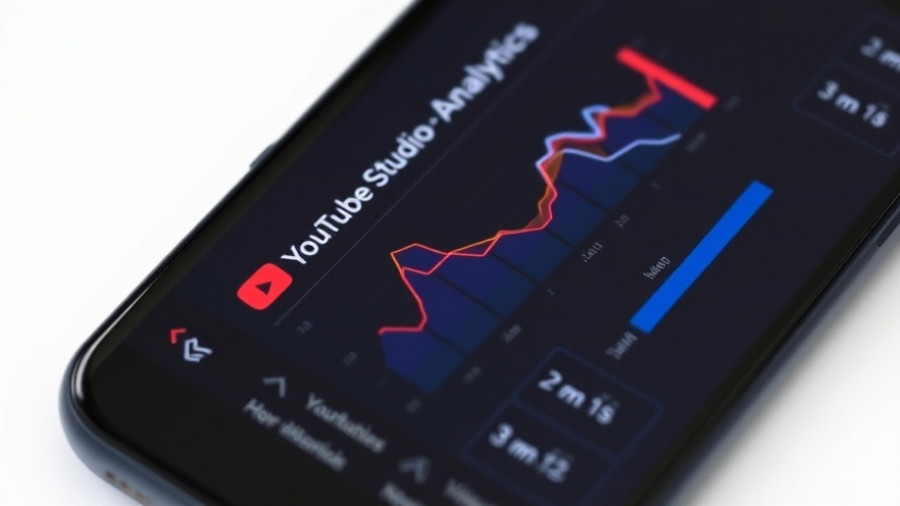
Understanding the Rise of AI in Search Engine Optimization
As the digital landscape evolves, search engines are increasingly leveraging artificial intelligence (AI) and machine learning to enhance user experience. Recent research from BrightEdge highlights significant differences in brand citations when comparing Google’s AI Overviews and ChatGPT. This suggests that businesses must adapt their search engine strategies to optimize visibility across different AI platforms.
How AI Platforms Differ in Brand Citations
The BrightEdge research reveals that Google AI Overviews and ChatGPT recommend different brands approximately 62% of the time. This discrepancy stems from each AI's approach to interpreting data.
For example, Google AI Overviews averaged 6.02 brand mentions per query, while ChatGPT only cited brands 2.37 times. This finding poses a crucial question for marketers: how can they ensure their brands are visible across these varying AI platforms?
Significance of Intent-Based Keywords in E-Commerce
Crucially, the study noted that commercial intent keywords—such as "buy" or "deals"—generated brand mentions 65% of the time. This aligns with traditional search behaviors and underscores the importance of optimizing brand content with high-intent keywords. Businesses in e-commerce and finance achieved over 40% brand mention coverage across all AI platforms, highlighting an opportunity for targeted keyword strategies.
Implications for Future Search Engine Strategies
The divergence of responses from different AI platforms indicates that brands should not rely on a single approach to SEO. While ChatGPT seems to favor established brands due to its underlying language model (LLM), Google AI Overviews emphasizes a wider variety of mentions. Therefore, brands aiming for comprehensive visibility should diversify their marketing tactics across various platforms.
How to Capture AI-Driven Visibility
BrightEdge suggests several strategies for brands looking to enhance their presence on AI platforms:
- Prioritize High-Quality Content: Create informative and engaging content that answers users’ queries effectively.
- Develop a Robust Citation Strategy: Focus on earning mentions through various channels, ensuring that your brand is prominent on multiple platforms.
- Monitor Trends: Regularly analyze brand mentions and user behavior to identify emerging trends that can inform future strategies.
By understanding different AI platforms and how they operate, brands can ensure their marketing strategies are comprehensive and effective.
Addressing Misconceptions in AI Optimizations
A common misconception is that established brands naturally have an advantage due to their authority. BrightEdge’s analysis indicates it’s more about the types of data that each AI platform is trained on. Brands that continuously innovate and adapt to these algorithms stand the best chance of improving their search visibility.
The Future of AI Search Optimization
With the rapid growth of AI technologies, brands must stay ahead of the curve by refining their approach to SEO. Implementing insights from research studies, such as those from BrightEdge, and adapting to varied AI platforms will be key to success in the coming years.
In conclusion, optimizing for Google AIO and ChatGPT requires a nuanced understanding of each platform's strengths and weaknesses. By continuously adapting strategies and leveraging high-intent keywords, brands can seize the opportunity presented by AI-driven search engines. Staying proactive and relying on data-driven insights are essential to thrive in today’s competitive landscape.
 Add Row
Add Row  Add
Add 




Write A Comment